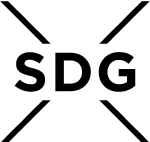Formal education textbooks mirror and represent existing stereotypes and prejudices of the society, and hence are riddled with covert and overt biases based on gender, caste, religion, disability etc. Research suggests that biases in textbooks affect students’ aspirations, leadership and career goals. Many civil society organisations, including think thanks, have conducted research to understand existing biases in textbooks through a gender lens and arrived at a similar conclusion. However, the focus has also been shifting in the past years to include the lens of other identities including caste, gender, religion and disability to promote bias-free textbooks accessible to all. This report titled, ‘Making textbook content inclusive: a focus on religion, gender, and culture’ by UNESCO address similar concerns. Read the full paper here.

